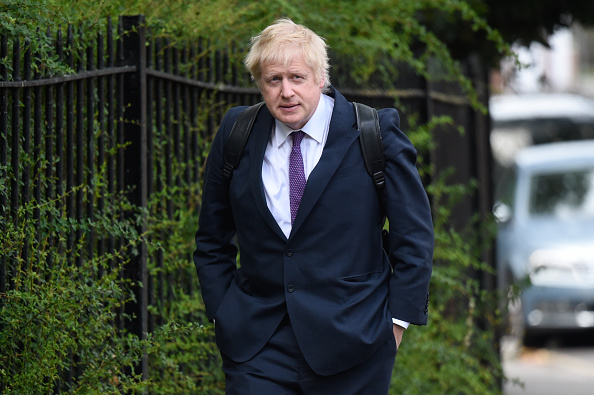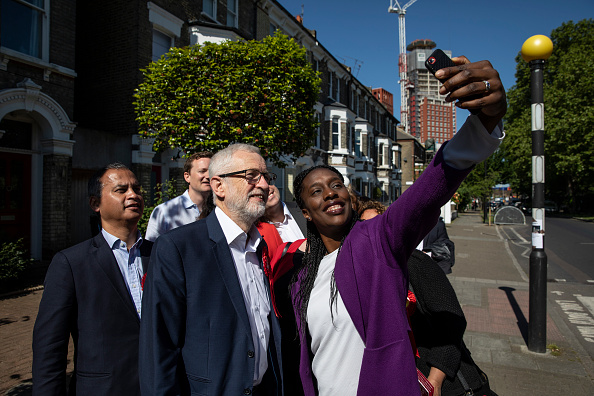THE TORIES AND MAY IN DISARRAY
Theresa May’s premiership has been disastrous in many ways. Despite presenting herself as a no-nonsense politician who would deliver what the British electorate asked for back in 2016, she ended up negotiating a deal that delayed many elements of a proper divorce from Europe and what’s worse she negotiated a deal that did not properly address important issues like the Irish backstop. Throughout her premiership, she claimed that a no deal was better than a bad deal, but she still pushed for her unpopular deal, a move that ultimately led to her demise. Despite the fact that the leadership competition will kick off in June, a new Prime Minister is expected to be elected by mid-July. This will leave the country’s new leader with just over three months to negotiate a new deal with the European Union, a task that took May three years. A significant portion of Conservative members is comprised of Brexit supporters, as such a pro-Brexit Tory, particularly Boris Johnson, will likely end up as one of the final two premiership candidates. If Johnson does end up becoming Prime Minister, then predicting the direction he will opt for the country is difficult since he has proven to be quite unpredictable in the past. If he is indeed the staunch Brexiter he claims to be, then he might choose to pull the country out of the EU without a deal. While that would be a risky action to take, it would please Brexiter Tory supporters who simply want the government to get on with the process without any bureaucratic delays. Such a move would also be a thorn to smaller pro-Brexit parties that have arisen in recent years.

CORBYN’S WINDOW OF OPPORTUNITY
The Labor party has also not handled the Brexit situation well, as its unclear stance on Brexit has caused it to lose public support from both remainers and leavers. Moreover, its failure to oppose the ruling party by advocating for a second referendum has alienated its young pro-EU voter base. Remainer frustration with Labor was translated into vote loses in the European election as the Liberal Democrats arose as the primary pro-remain party, coming in second after the Brexit Party. In spite of this, the current weakness of the Tory party might present Labor leader Jeremy Corbyn the window of opportunity to call for a snap election, increasing his chances of becoming Prime Minister. However, the shadows of the 2017 snap election still loom over parliament, as May sought to solidify her strength in parliament only to force her into forming a coalition with the Democratic Unionist Party (DUP). Current circumstances do not make calls for an election ideal, since both parties seem unlikely to gain a majority in parliament, as such, the party with more seats will have to form a coalition with smaller parties. Recent coalitions in the British parliament have proven to be unfavorable for such smaller parties, as the Lib-Dems only recently recovered from their coalition with David Cameron and the DUP has been increasingly frustrated with the Conservative’s inaction over the Irish backstop. So it would suffice to say, that smaller parties will probably not be eager to join forces with the two mainstream parties this time around. If Corbyn makes a dramatic turnaround and starts to openly support a second referendum, then the Liberal Democrats might be more encouraged to join Labor. However, Corbyn, like Boris Johnson, is now seen as an opportunist who is desperate to become Prime Minister and as a result, any sudden political U-turns on Brexit will be seen as insincere.

IMPACT OF SMALLER PARTIES IN THE NEXT GENERAL ELECTION
Shortly after winning a seat for the South East England constituency in the European Parliament, Brexit Party leader Nigel Farage gave a stark warning to the country’s political establishment: “If we don’t leave (the EU) on October 31, then the scores we have seen for the Brexit Party today will be repeated in a general election and we are getting ready for it.”
The Brexit Party and the Liberal-Democrats’ big gains in the last EU parliamentary elections have left many to ponder whether or not these smaller parties with clearer messages can repeat their success if a general election arises. History has shown that such a scenario is unlikely, during the 2014 European parliamentary elections UKIP won the most seats in the UK gaining 24 out of a possible 73; however, during the following year’s general election they only managed to win one seat in the British parliament. While speaking to the Independent, Andrew Russel, a politics professor from the University of Liverpool, argued that the Brexit Party lack the grassroots organization to do well in an upcoming general election, furthermore, he said that the way the European elections are structured actually helps these smaller parties perform better than in domestic elections. As such, the Liberal-Democrats, a party with a long history and grassroots, might actually have a big impact on any upcoming general election. The fact that, until 2015, the Lib-Dems were the third biggest party in the country also helps its chances. Additionally, the Scottish Nationalist Party (SNP) will likely gain more seats in parliament, as the political divide between England and Scotland has been widening ever since the 2016 referendum.
Despite Labor’s shortcomings, the Electoral Calculus currently predicts that if a general election were to occur then Labor would gain the most seats but it would still be short of a majority. The founder of the Electoral Calculus, Martin Baxter, also spoke with Channel 4, stating that Corbyn would almost certainly become the next Prime Minister, ruling either as head of a minority government or a coalition government. If Labor does win an election, then it would probably not choose to rule as a minority government since that would make it difficult to pass legislation. Consequently, Labor would need a coalition partner and the most likely candidate is, of course, the Liberal Democrats. Whether or not the Lib-Dems choose to team up with Labor is up to debate, but the bottom line is that the Conservative Party's incompetence and division over the past three years may have paved the way for an eventual Corbyn government.
WHAT THE EU THINKS
The UK took part in the May 28 EU Summit in which EU leaders delivered one clear message: the Brexit deal will not be renegotiated. The President of the European Commission, Jean-Claude Juncker, stated that there will be no renegotiation, while Xavier Bettel, the Prime Minister of Luxemburg was much more assertive as he said: “We had the negotiation, we finished a negotiation and it is not because a head of government is going to change that we restart negotiations…”
It is evident that any new leader who takes over the UK government will have a tall mountain to climb, especially if he or she seeks a new deal with a headstrong EU. Moreover, with the deadline looming closer it is unlikely that a new head of government would have enough time to get a substantive deal from the EU. In an ironic twist, a new Prime Minister might find him or herself forced to push for May’s deal, lest risking the country getting pushed out of the EU without a deal.









